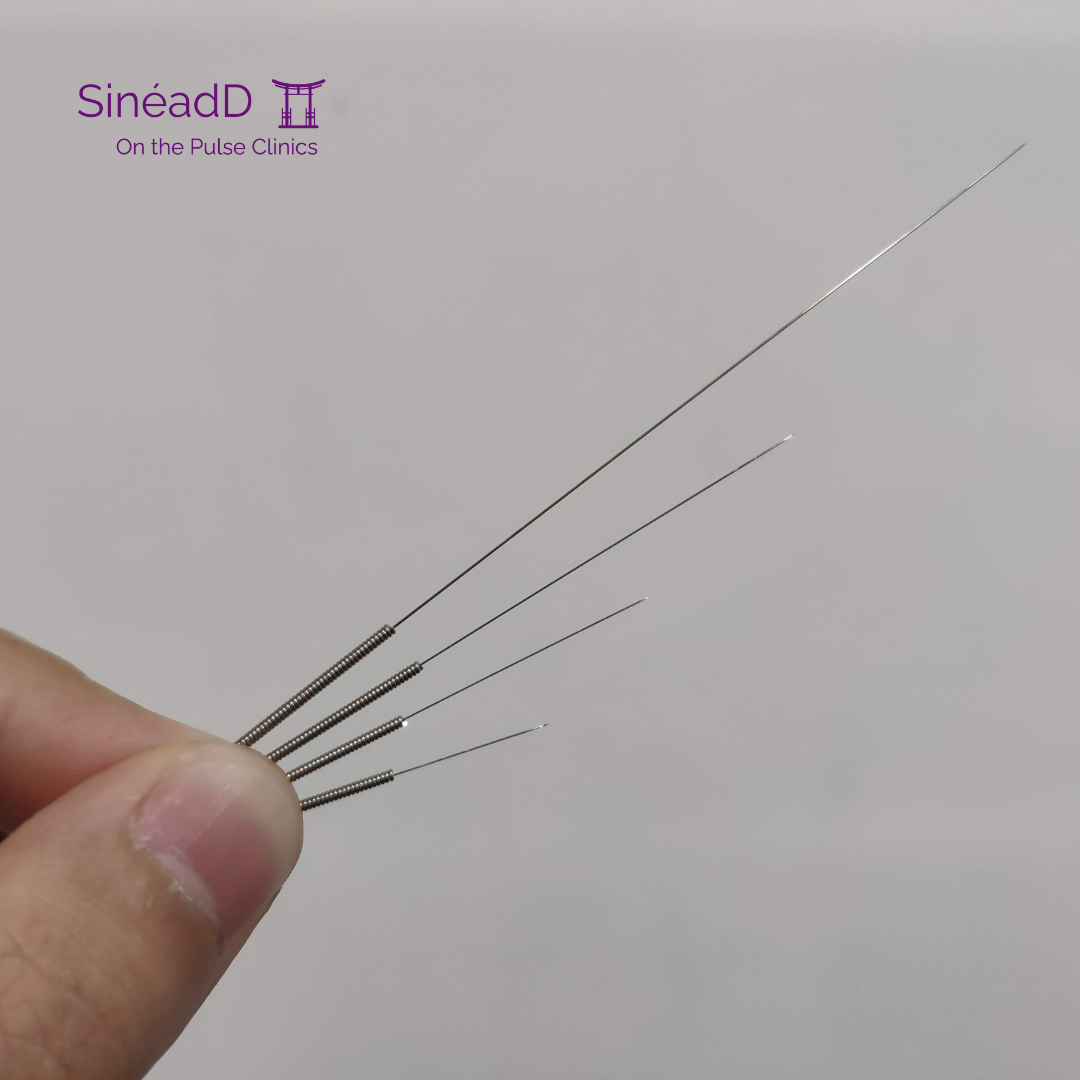Facing Needle Fear: How Acupuncture Really Feels
I only use the first 2 smaller needles in my clinic. Although the longer needles look scarier, it’s really only the width of the needle that matters.
When most people hear the word acupuncture, their first thought isn’t calmness or relief. It is often needles. Understandable, but not the full story.
I often hear, “Why would you let someone stick needles in you?” or “Isn’t that painful?” The truth is, acupuncture doesn’t work that way.
Why acupuncture needles feel different
Medical needles you’ve experienced before, like blood tests, injections, or even dialysis, are hollow. They are designed to push medication in or pull blood out, so they need to be wide and strong. Acupuncture needles are completely different. They are solid, hair-fine, and designed only to gently influence the body’s own systems.
Most people feel little more than a fleeting sensation as the needle is placed. Sometimes there is a dull ache, warmth, tingling, or light heaviness. In acupuncture, we call this the arrival of qi. What this really means in modern terms is stimulation of the nervous system and increased blood flow to the area being treated. These responses help the body reduce pain and begin healing.
Facing the fear
I see many first-time patients arrive anxious, some even terrified of needles. That fear is real, and I acknowledge it. Yet almost without exception, by the end of the session they are surprised at how much better they feel in themselves. In my clinical experience, it is very rare not to see some reduction in pain, even after the first treatment.
Why try acupuncture?
Acupuncture has been part of healthcare in the West for decades and is supported by growing evidence for pain relief, stress, fatigue, and more. It is not “woo-woo” or mystical. It is a safe, evidence-informed therapy that can complement the care you are already receiving.
If pain or stress is interfering with your life, and if your usual options are not giving you relief, why not try something different? You may find that your fear of needles disappears far quicker than the problem you came in with.

